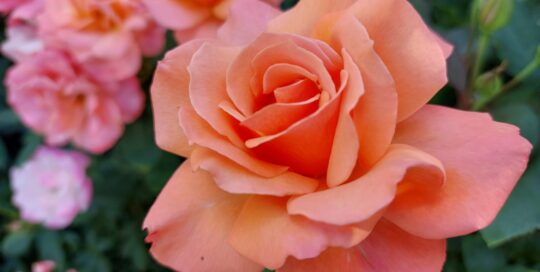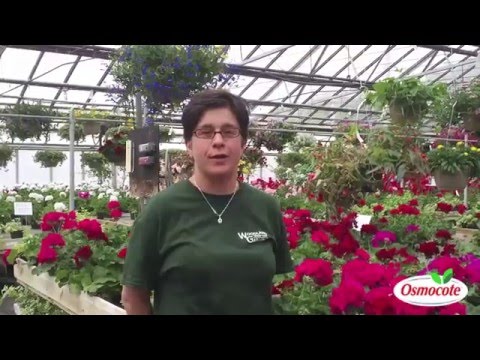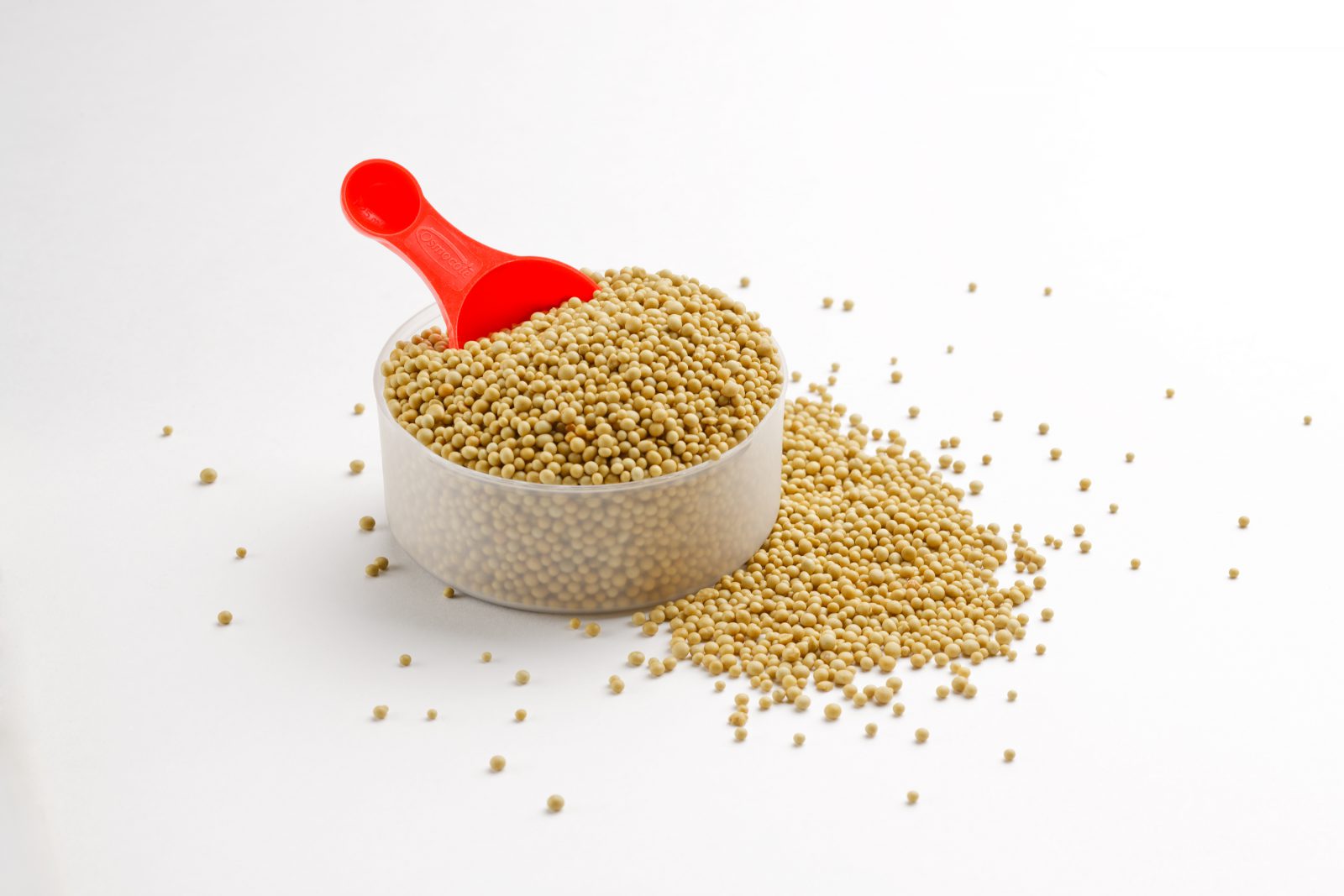Rosebuds and Yellow Jackets in the Garden
Views: 3661
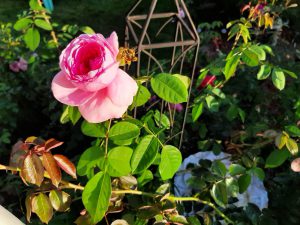
All of a sudden, summer is finished. We always take our vacation in September which stretches out the summer season for us. I have always stopped spraying and deadheading my roses on September 1st, but last year while we were away, my roses were attacked by tobacco bud worms and my whole fall bloom was destroyed by these critters. Remember, we had just moved here six months previously, and each new place has its own microculture…Suffield has a lot of tobacco farms! With the tobacco harvested, the moths flew in and laid their eggs on my roses.
This year, I decided to be proactive before we left, so I sprayed one more time to save myself pest devastation. When we came home, the roses were tall, blooming, and full of buds. Imagine how shocked I was to observe yellow jacket wasps pig-piled on individual rose buds! They buried their heads in the buds, eating them. In my forty years of rose growing, this is the first time I had ever observed such a bizarre thing in my garden! These creatures hate being disturbed and deliver a nasty sting. Plus, there seem to be thousands of them swarming around. Yikes!
Yellow Jacket Facts
I have always hated yellow jackets. This is the wasp that always seems to sting me while I’m taking washing off the clothesline in autumn. These are the insects who invite themselves to summer picnics and climb into soda cans and eat hamburgers and relish, with relish! They buzz around and make a nuisance of themselves. However, what they are really doing is gathering food to feed to the hungry larvae and nymphs that are waiting back at the colony. And, picnics are an easy food source.
Where do they come from?
The colony is started by one fertilized queen. She chooses a spot (a hole in the ground, a hole in the eaves of a building, etc.), builds a few cells from foraged wood or cardboard which she chews up and mixes with saliva, and lays her eggs in them. When these eggs hatch, she hunts insects and caterpillars which she feeds to her offspring. Soon, they are adult wasps which will care for the queen as she lays more eggs in the colonies. These are the female worker bees that will build more cells, bring back food for the young and the queen, and in a very short time, the colony will increase into the thousands.
They kill and consume many of the insects that ruin crops. When the workers bring back prey and feed it to the larvae, these young ones produce a sweet liquid that the adults consume. Early in the summer, the colony hungers for protein, but at the end of the season, when the queen stops laying eggs and there are no more larvae, the colony heads out to satisfy its hunger for sweets. This is when they are swarming around and they really have no sense of humor! It is best to avoid contact with them.
A honey bee has a barbed stinger, and if she stings you her venom sack will be pulled out of her abdomen and she will die. A yellow jacket has a smooth stinger and is loaded with venom. She is capable of multiple stings. They also crawl around in garbage, roadkill, and animal droppings. A yellow jacket stung my neighbor. She wound up in the hospital for a week with cellulitis from the bacteria on the wasp’s lower abdomen.
Black bears like to dig up ground nests and slurp up the nymphs and larvae from under the ground. Foxes, skunks, and raccoons also feed on nests that they can dig into.
Yellow Jackets Eating Roses?
So, now we know that late summer and early autumn is the season for yellow jackets to forage for sweets. They like to eat the ripening fruits in the orchards, stripping or slitting the skins and sucking up the juices that drip out. I couldn’t find anything in my research on yellow jackets eating roses. But, the ones in my gardens seem to like to the sweetest smelling roses I grow. The rose in the picture above is ‘Gertrude Jekyll’, a super-fragrant David Austin rose. Notice the side bud on the right completely covered with ravenous yellow jackets. They have also ravaged the buds on ‘Heirloom,’ another very fragrant rose. My lesson here is that, just when I thought I had seen it all, nature came along and surprised me again. Unlike last year’s tobacco bud worms, at least the yellow jackets are not destroying everything.
Meet Marci Martin
Marci Martin has loved roses for as long as she can remember. From the time she was a little girl, she was fascinated with how…
Marci's Recent Posts
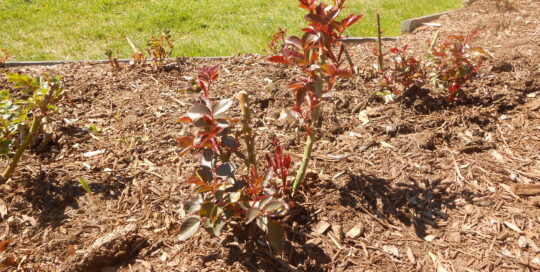
March: An Early Start in the Rose Garden This Year
